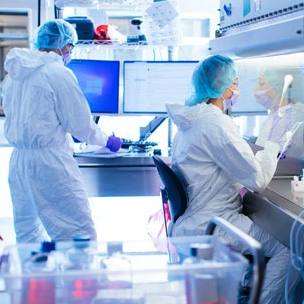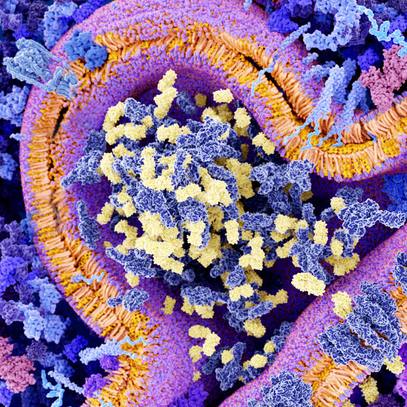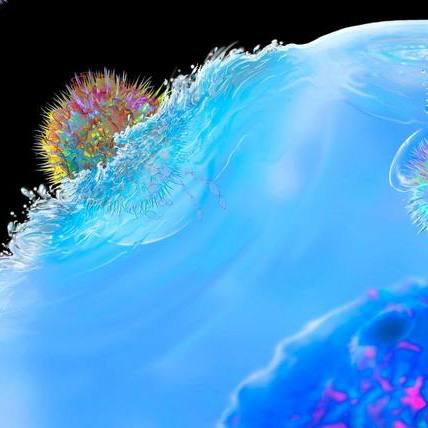-
Biotherapeutics
Focus on women’s health: regenerative approaches to stress and fecal incontinence

Mayo Clinic is taking a regenerative approach to women’s healthcare to provide new therapeutic options for common conditions that standard treatments don’t fully address. One key area of focus is pelvic floor injury that leads to stress incontinence, a widespread and often embarrassing problem affecting some 18 million women, according to the National Association for Continence.
With support from the Mayo Clinic Center for Regenerative Medicine, researchers are probing ways to direct cells to grow new skeletal muscle and restore the body’s ability to control the release of urine and stool.

“These are clearly embarrassing situations for our patients, and I believe that often there’s an under representation of women who deal with this. For every patient I have in my office, there’s probably another 5 or 10 who are not coming in because she’s embarrassed to talk about it,” says Emanuel Trabuco, M.D., a urogynecologist at Mayo Clinic.
Life events unique to women such as childbirth, pregnancy and menopause may injure and weaken sphincter muscles surrounding the urethra — the tube through which urine passes out of the body. That can lead to involuntary leaking of urine, particularly when a woman laughs, coughs or sneezes.
Since the late 1990’s, the standard surgical treatment for stress incontinence has been a polypropylene mesh sling implant that supports the urethra. However, even with the sling, some women still experience involuntary leakage. Mayo Clinic researchers are seeking regenerative solutions that would bolster standard treatments and provide new therapeutic choices.
The research
Mayo Clinic researchers are investigating the use of purified exosomal products (PEP) to grow skeletal muscles that could strengthen the pelvic floor. PEP is a cell-free product developed at Mayo Clinic that can be used right at the hospital without the need to grow cells in a lab. PEP contains molecules that direct stem cells to grow and make new muscle, thereby repairing areas of injury. Researchers discovered that PEP could repair the injured urethral sphincter muscle and re-establish pre-injury pressures using an animal model. The histological evaluation showed new muscle tissue and less inflammation at the site of the injury. They hope that these findings could be translated into a new treatment to control stress incontinence in humans.
“If this works, this would be the first time we’ve been able to improve muscle function as an alternative to treating stress incontinence,” says Dr. Trabuco. “In the past, the only incontinence treatments have been procedures like a sling that establish support underneath the urethra. This would also provide an alternative treatment for women who had a sling but still suffer from slight urinary leakage.”
Fecal incontinence
During child birth, up to 25% of women injure the anal sphincter, a group of muscles that maintains fecal continence when contracted. Despite suture repair of the anal sphincter, some women fail to restore muscle connections and function due to infections or scarring. This results in fecal incontinence symptoms.
“Studies show up to 88% of women still had defects in the anal sphincter after the suture repair. It seems that the anal sphincter repair at the time of delivery is not working for a lot of women. As a result, many patients seek help for fecal incontinence many years after delivery,” says Dr. Trabuco.
Ideally, the optimal time to re-establish function is at the time of delivery. In pilot studies, researchers repaired the anal sphincter with suture while adding PEP to the repair. Similar to their studies on urinary incontinence, researchers showed that sphincter repair with PEP improved muscle healing and strength. These findings gives them hope that new treatment options for fecal incontinence may be on the horizon.
Researchers are seeking to test the purified exosomal products in humans in a phase I clinical trial in humans before then end of 2020.
###
The Center for Regenerative Medicine recognizes Michael S. and Mary Sue Shannon for their generosity and support in advancing regenerative women’s health research.







